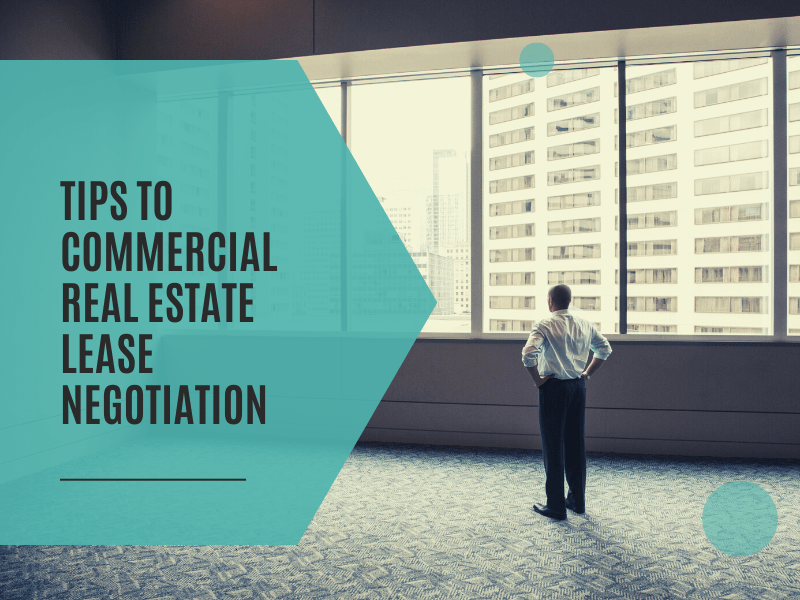
A commercial lease agreement can be long, detailed, and full of legal language that might not be immediately clear, even to an experienced real estate investor. Whether you own a retail space, an office building, or something more industrial, your lease agreement is an important part of protecting your investment and your financial interests.
Tenants will come to your building with certain expectations. You’ll also have an idea of what you want to be responsible for and what you expect your tenants to do. A good commercial lease is specific and detailed, and it doesn’t leave much to chance.
Remember that everything is negotiable. You and your new tenants may come to some decisions about taking specifics out of the lease or adding new things into the lease. As long as you’re feeling protected by what’s decided, almost everything is on the table.
Don’t sign your lease agreement without having a commercial attorney or a Prince George’s County property manager review it. The lease must protect you and it must also be legally compliant and enforceable.
Here are some of our best tips to commercial real estate lease negotiation.
Commercial Lease Terms in Prince George’s County
How long do you expect your tenants to be in your commercial property?
Some lease agreements are as short as five years and as long as 20 years. It really depends on your space, your own investment goals, and the type of time commitment your potential tenants are willing to make.
Most commercial lease agreements begin with a proposed length and then offer extension options and escalations. Ideally, you’ll find tenants who are willing to sign a longer lease. It allows you to do some serious financial planning and to project what you’ll earn on that space in both the short and long term. You can also save money on turnover costs, vacancy, and the expense of marketing for new tenants after just a few years.
However, it helps to be flexible. Your tenants may want a shorter lease term if this is a new business for them.
The term of the lease will also depend on whether your tenants are investing their own resources to make renovations to the space they’re renting. If a tenant in your commercial space has plans to do some renovations and wants to amortize the investment they’re making, it’s important that you include specifics about what is permitted. You might require that all permanent fixtures stay at the property even after the lease has expired, for example. This protects you against default or early lease terminations.
Maintenance and Repair Conditions in Commercial Leases
If you’ve also invested in residential rental property, you know that the property owner is unilaterally responsible for most maintenance at the property. With commercial investments, you can put some of the burden on the tenants.
You own the building. But, your commercial tenants are running businesses from the spaces you rent them, and they will need specific things that are not necessarily your responsibility.
It’s extremely important to outline who is responsible for which maintenance tasks in your lease agreement. You can negotiate a lease that says the tenant is responsible for all systems in the commercial unit, including air conditioning and heating and plumbing. Tenants may agree to this but also ask for a dollar limit on what they’re required to pay for maintenance and repairs.
This is something for an investor to think about. Leaving your tenants in charge of paying for maintenance and repairs is a great way for you to save money. But you also have to think about the long term condition of your investment. Those tenants are going to vacate the property at some point – maybe in a year and maybe in 10 years. What if they don’t maintain the property to your standards? You could be left with a lot of deferred maintenance and a lot of renovation costs once they’re gone.
Stipulate that there will be inspections to ensure the property is being maintained properly.
You might also be renting out different spaces in one building to several different commercial tenants. How will you handle the maintenance of common areas? What about the parking lot or the garage?
Common area maintenance shows up in a lot of commercial lease agreements as “CAM.” This is money you can collect from your tenants on top of the base rent they pay to occupy your unit. These expenses cover the costs of maintaining common areas. If you have six different companies in an office building, for example, you’ll want to collect a monthly fee from each of them to pay for things such as:
- Sidewalks
- Landscaping
- Snow removal
- Elevators
- Lobby areas
Explain exactly what the common areas include in your lease.
Most commercial owners and tenants will negotiate CAM costs in accordance with the tenant’s square footage. Your tenants who rent 2,000 square feet of space, for example, will have a lower monthly fee than those tenants with 5,000 square feet of space.
If you’d prefer to keep things consistent and collect the same flat fee from all your tenants, you can work this into your lease agreement as well. It’s also important to negotiate an increase. It’s not unreasonable to have the CAM fee increase three percent annually. Tenants may look for a cap on how high these fees can go, so consider the length of the lease agreement when you’re working out what to charge them.
Negotiating Tenant Improvements to Prince George’s County Commercial Properties
You can offer your commercial property “as is” and find a tenant who is willing to take it.
But, most commercial tenants will want to customize the space they’re renting to fit their unique business. One of your tenants might be opening a new retail shop and they’ll want better lighting, for example. When tenants want physical renovations and updates, they may ask you for a Tenant Improvement Allowance.
This is money you’ll pay for improvements to the space. Typically, it will cover:
- Different paint colors or wall aesthetics
- New flooring
- Updated fixtures such as lighting and mirrors.
- Walls to divide up larger spaces
Generally, a per-square-foot amount will be offered by an owner, or a flat sum of money that the tenants can use as they see fit.
Be prepared for how to handle improvements that will surpass the amount of the allowance you’re offering. You’ll want the tenant to be responsible for those costs, so write that into the lease agreement.
Once you decide how much of an allowance you’ll provide for improvements, you have to negotiate how the work will be completed and by whom. You’ll need a timeline and you’ll want to make sure reputable vendors and contractors are being called in, so the integrity of your building is respected and protected.
Lease Terminations
The owner and the tenant of a commercial space are bound to fulfilling the terms of the lease. But, your commercial tenants might have an unexpected downturn in their industry or their business. They might have to terminate the lease early.
Protect yourself against the unexpected loss of tenants and rental income with an early termination right, which will allow the tenant to end the lease before the agreed lease term expires, as long as they are willing to provide proper notice and pay any penalties or early termination fees.
What you negotiate will depend on the type of commercial property you own. When you have office space, you might offer your tenants a 10-year lease with an option to terminate the lease at year five, for example. With retail spaces, many tenants prefer to see a “kick-out” clause in the lease, which releases them from the lease term if gross sales targets are not met.
Always negotiate an early termination fee.
It could be the equivalent of several months of rent or it can be a flat fee that’s likely to cover the expense of finding new commercial tenants.
Look for Relocation Rights
 When you own several commercial spaces, you might consider negotiating a relocation right into your lease agreements.
When you own several commercial spaces, you might consider negotiating a relocation right into your lease agreements.
This is an option you’ll have to move a tenant’s business to another space in your shopping center, office building, or other commercial property.
Your tenants will likely only agree to this being written into the lease if you’re willing to pay for the costs associated with the move. Remodeling the space, however, can be a shared expense or something paid for by the tenants.
While these are general tips on negotiating a lease agreement, we’d be happy to take a look at your specific property and your needs. Every lease agreement will be written to fit the needs of the owner, the commercial tenant, and the space itself. Your retail stores will have different requirements than an office building, a fitness center, or an industrial warehouse.
We can help with your commercial management needs, and we’d love to talk with you. Please contact us at Stripe Management. We work with owners, investors, and properties in Upper Marlboro, Prince George’s County, Washington, D.C., Capitol Heights, District Heights, Baltimore, and anywhere in the DC metro area.
